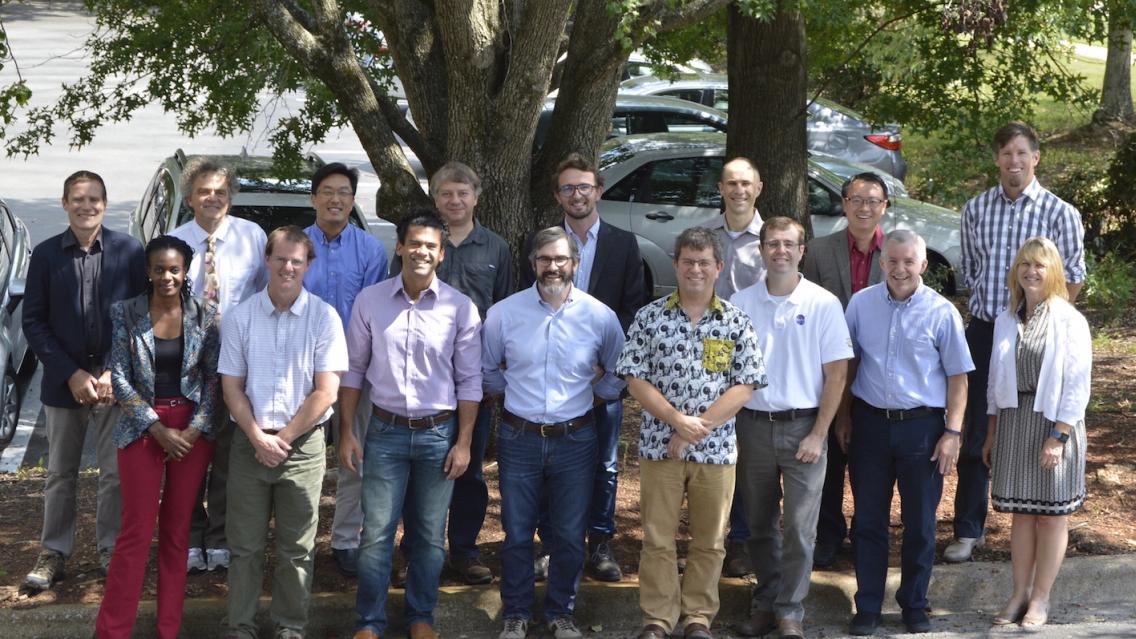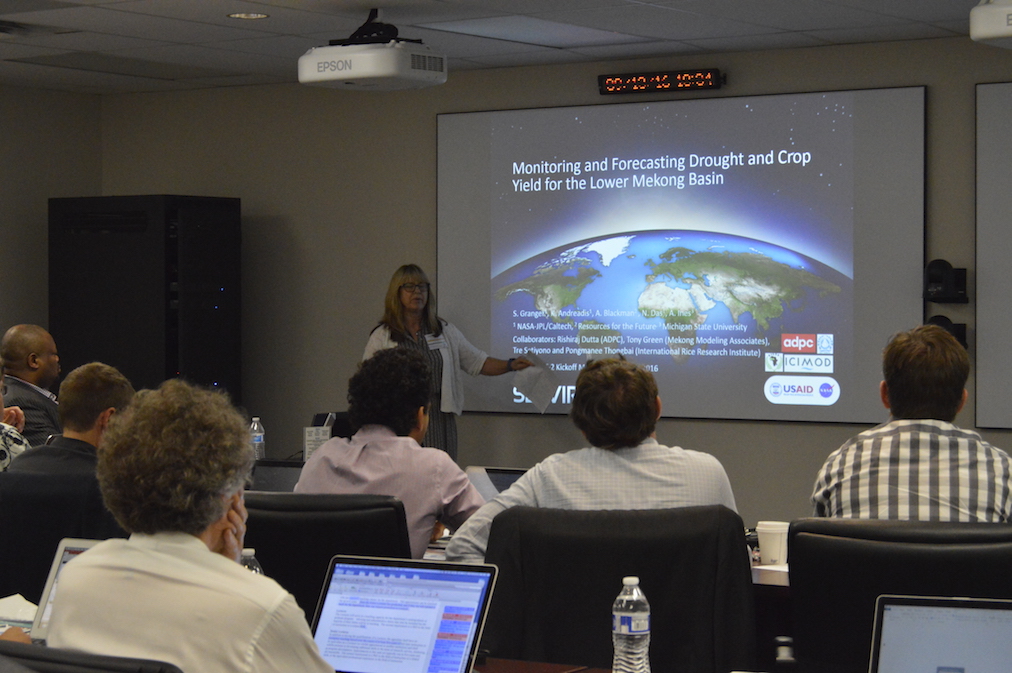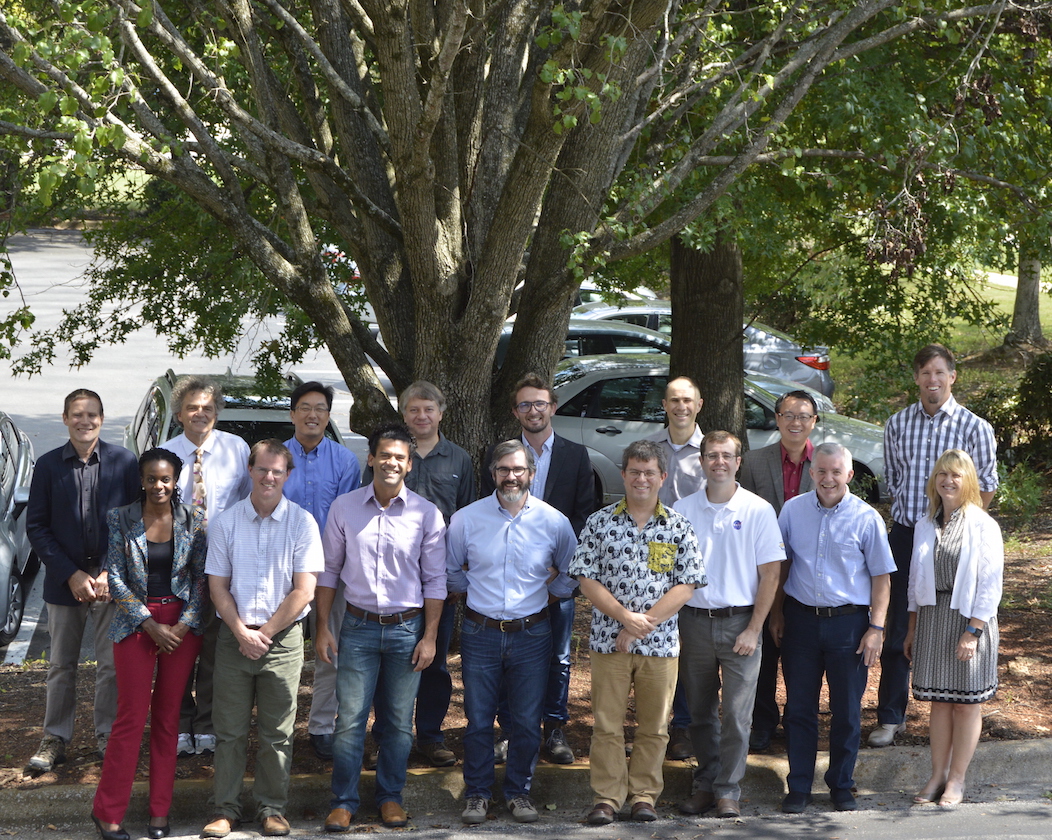SERVIR's new Applied Sciences Team kicks off

Sixteen scientists from across the country converged at the SERVIR Coordination Office (SCO) in Huntsville, Alabama, last week for three days of intensive discussions. These members of the newly chosen SERVIR Applied Sciences Team are kicking off new projects in SERVIR hub regions: Eastern and Southern Africa, West Africa, the Hindu Kush-Himalaya region, and the lower Mekong region of southeast Asia.
 |
| Applied Sciences Team Principal Investigator (PI) Stephanie Granger presents an overview of her project |
The projects bring the latest in Earth observation and geospatial technologies to bear on regional issues related to agriculture and food security, water resources and hydroclimatic disasters, land cover and land use change and ecosystems, and weather and climate. Developed in collaboration with the SERVIR hubs, these projects are also designed to build regional capacity for using these cutting edge tools and data.
“The Applied Sciences Team really is at the heart of SERVIR,” said SERVIR Global Program Manager Dan Irwin in his opening comments to the new AST members. “The hubs are unbelievably excited about the science and innovation you are bringing to the SERVIR regions.”
After providing overviews of their projects to SCO team members and SERVIR leadership from USAID and NASA, the scientists received a wealth of information. For example, they learned about the SERVIR environment and context for their projects and how the SERVIR SCO can support and enhance their efforts. The meetings also provided an opportunity for the AST members to interact with one another and network a bit.
“I really enjoyed meeting the other PI’s and learning about their projects,” said Jim Nelson of Brigham Young University. “I feel like my own ‘network’ expanded significantly as a result. I loved the way SERVIR made us feel like a team right away.”
Ben Zaitchik of Johns Hopkins University was also pleased with the three-day event: “I thought that AST was one of the most useful program meetings I’ve ever attended. I appreciated the informed and honest discussion that the SERVIR leadership led regarding the push-pull of science-driven vs. application-driven research, and I came away quite convinced that the SERVIR effort is engaging in that challenge both creatively and productively. I also felt more like a ‘team’ than I have at any other science team meeting, as there are common challenges and aspirations across hubs and research themes.”
 |
| Members of the new SERVIR Applied Sciences Team |
Patrick Gatlin from NASA’s Marshall Space Flight Center agreed: “It was an excellent idea to have us meet this early in the project. We found some overlap among regional projects that should enable a more efficient pathway to the end-user.”
In his comments to the attendees, Albert Anoubon-Momo from USAID in fact emphasized the importance of connecting with end-users: “There is no SERVIR without end-users. We want to develop products that will be useful to them.”
“Overall, SERVIR is a science project,” he continued. “I think I am proudest of the fact that SERVIR is bringing this kind of science to regions where they do not have this expertise.”
Near the end of the three-day event, NASA Headquarters’ Nancy Searby noted that although the AST was provided a great deal of information, she hoped it hit home with them and that they “listened intently enough to be changed by what they heard.”
Irwin closed the proceedings with his own hopes for the group: “The whole notion in the name ‘SERVIR’ is to serve. I hope everyone will embody that in the work they are doing. It’s not what you do but why you do it.”
Notes:
Through SERVIR, NASA's Earth Science Division’s Applied Sciences Program advances the use of space-based observations to inform policy and decision makers as they adapt to the impacts of global change and plan for a sustainable future. NASA’s Research Opportunities in Space and Earth Sciences (ROSES) 2015 included an Applied Sciences Program solicitation to select this new SERVIR Applied Sciences Team.

